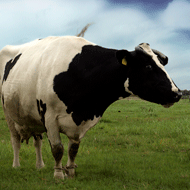Latest figures for bovine TB

A total of 23,876 cattle were compulsorily slaughtered between January and September 2014.
The Animal Health and Plant Agency (AHPA) has released updated figures on the incidence of bovine TB in cattle in Great Britain.
According to figures released yesterday (December 10), there was a fall in new herd incidents and compulsory slaughters between January and September this year. However, Defra says these figures should be considered in the context of long-term trends. Further revisions of the TB incidence rates are possible as more data is gathered.
Key figures
- There were 3,373 new herd incidents between January and September 2014, compared to 3,491 in the same period last year.
- A total of 23,876 cattle were compulsorily slaughtered as reactors or direct contacts, compared to 24,616 in 2013.
- There were 56,904 tests on officially TB free herds, compared to 52,631 last year.
- Provisional incidence rate for January to September this year was 4.0 per cent. In the same period last year, the figure was 4.4 per cent.
However, Defra has warned against putting too much emphasis on short-term figures. Overall, there has been an upward trend in bTB figures since 1996.
Bovine TB has a serious impact on the food and farming industries. In 2012, the cost of a herd breakdown in high risk parts of England was estimated to be £14,000 for the farmer and £20,000 for the government.
For the full report, visit the AHPA's website: https://www.gov.uk/government/statistics/incidence-of-tuberculosis-tb-in-cattle-in-great-britain



 The Animal and Plant Health Agency (APHA) has updated its online reporting service for dead wild birds.
The Animal and Plant Health Agency (APHA) has updated its online reporting service for dead wild birds.